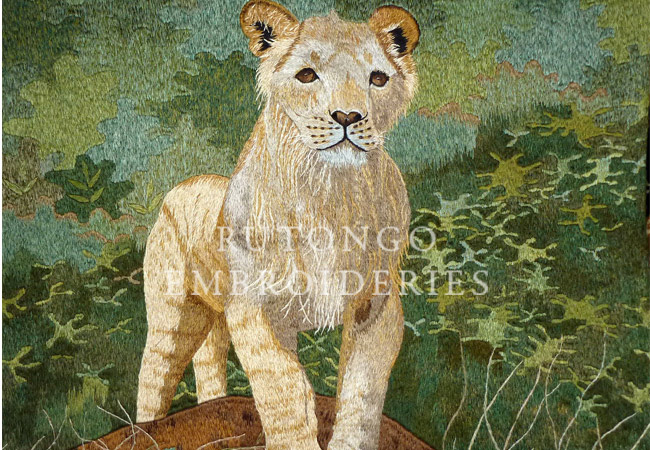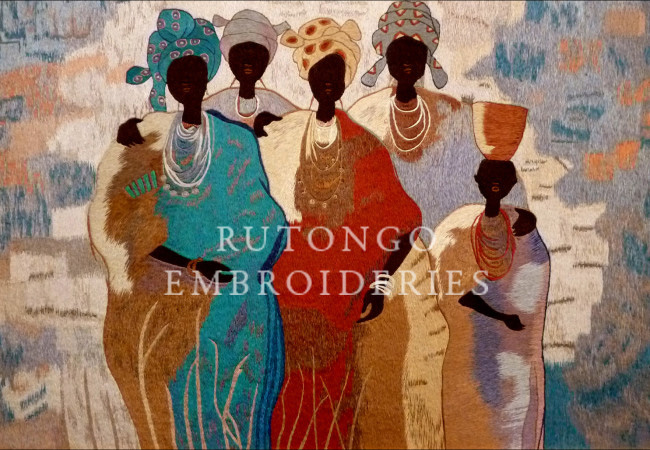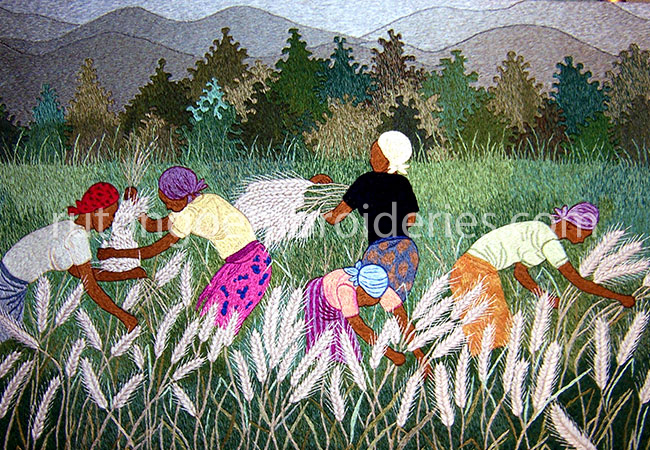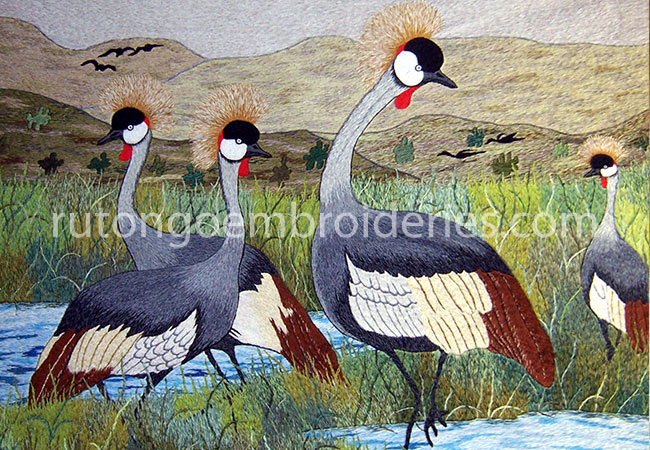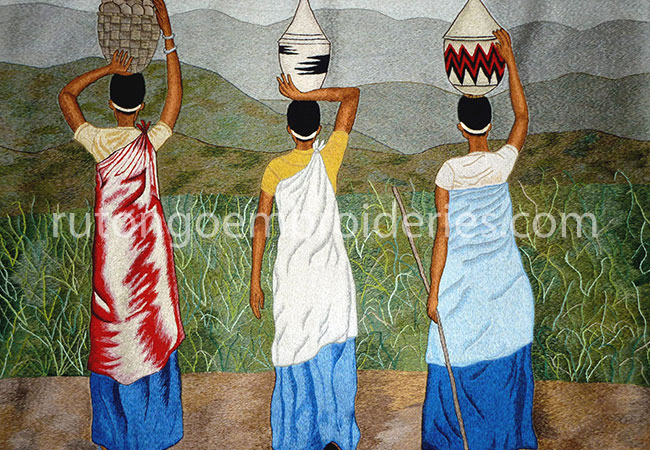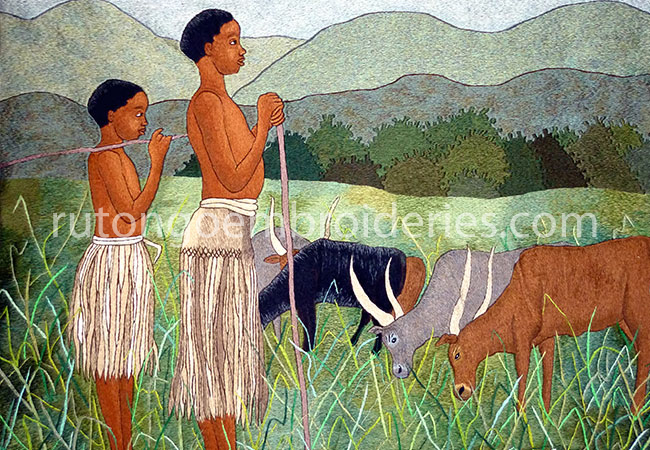A Wonderfully Unique Exhibit
The embroideries in this collection are created by a group of Rwandan women living in the aftermath of the 1994 Genocide Against the Tutsis. Their workshop, called Savane Rutongo-Kabuye, reflects the entrepreneurial spirit of Rwanda twenty years post-genocide. Like many of their fellow citizens, the artisans sit side by side each day, obliterating the lines between Hutu and Tutsi and working for reconstruction, reconciliation, and lasting peace. This phenomenon is what this exhibit calls “PAX Rwanda.”
Rwanda has no tradition of embroidery. Its ancient textile arts involve the felting of bark cloth and the weaving of raffia on simple looms. Yet with this borrowed art form infused with their distinctive style, the women of Savane Rutongo-Kabuye create stunning works of art that also provide a window into Rwanda’s history, ancient and modern. They use needle and thread to bring to vibrant life ritual objects from the reigns of the Rwandan kings; they show men and women in traditional garb working at activities that span the ancient and modern, like shepherding flocks, grinding sorghum flour, dancing traditional dances, and trading produce and livestock in open-air markets; they show the beauty of Rwanda’s native animals and plants; they even document the “gacacas,” village tribunals through which perpetrators of the genocide were judged by their peers.
Each embroidery is unique and represents the work of several talented women: those who sketch, those who choose the colors and execute the actual embroidery, and those who wash, stretch and prepare the works for mounting. The workshop, under the direction of founder and creative director Christiane Rwagatare, consists of twelve full-time embroiderers who earn a living wage. The project also has an eye to the future by seeking out new talent. Currently, seven young artists receive stipends from the Savane Rutongo-Kabuye as they learn the craft of telling their country’s story in colored thread.
